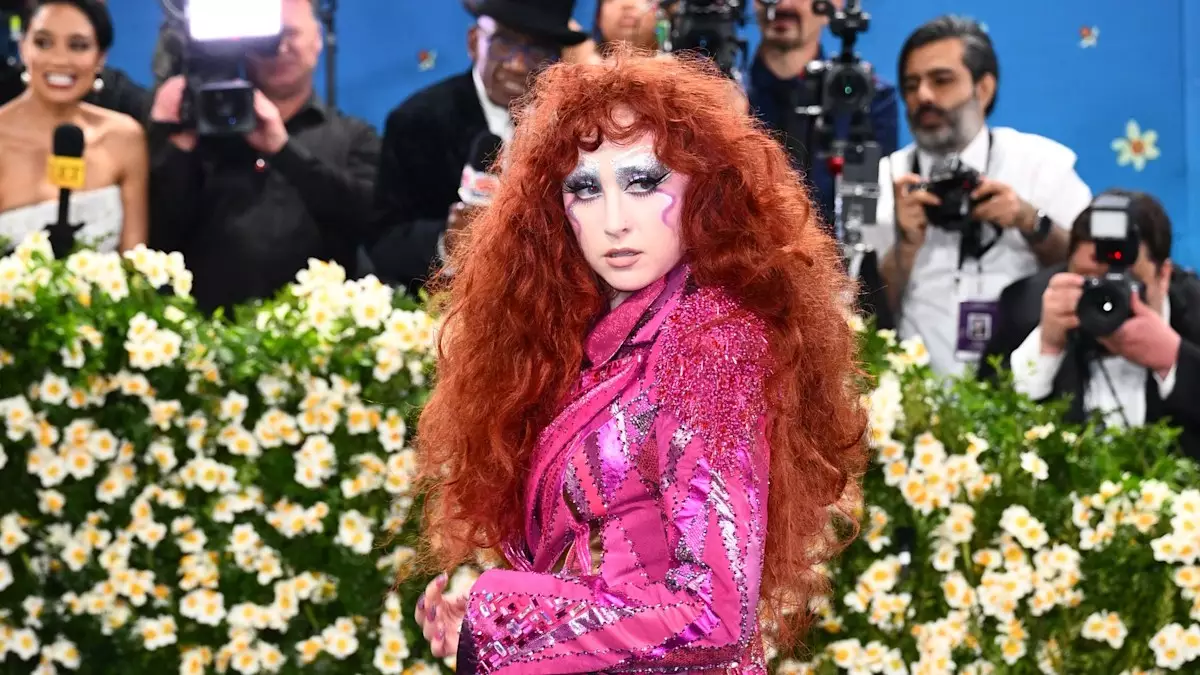Chappell Roan has catapulted into the music scene with a trajectory that few can rival, transitioning from an undiscovered indie talent to a celebrated figure almost overnight. This rapid rise, however, has not been without its complications. The singer openly admits that her newfound fame comes with immense pressures; the stakes are high, and the price of celebrity can often infringe on personal boundaries. In a revealing discussion on the Outlaws podcast, Roan expressed a frank and formidable sentiment: if she cannot defend herself, she may walk away from her music career. Her bold declaration underscores a significant issue in the entertainment industry—artists sometimes sacrifice their well-being for success.
The Villain Era: Drawing a Line in the Sand
Chappell describes her journey through what she refers to as her “villain eras,” moments characterized by pushback against disrespect and boundary violations from fans and media alike. This term challenges the notion that artists must remain palatable and unyielding, suggesting instead that taking a stand can be deemed ‘villainous’ in a society that rewards compliance. Roan’s experience reveals the unsettling reality that fame often comes with invasive behavior from those whom the artist least expects to challenge their personal space. Her refusal to accept unwanted advances illustrates a paradigm shift within the music industry, highlighting the need for a culture that respects artists’ autonomy.
Identity and Aesthetic Evolution
Chappell Roan’s artistic evolution parallels her personal journey. Initially emerging from a modest background in southern Missouri, her transition from a somber sound to a flamboyant, drag-inspired aesthetic speaks volumes about her growth. Her embrace of queer identity not only sets her apart but also empowers her to challenge societal norms in music. The release of her debut album, “The Rise and Fall of a Midwest Princess,” saw the breakout hit “Good Luck Babe!” which soared through the charts, solidifying her place within the pop landscape. Yet, as she navigates this newfound visibility, Roan remains deeply aware of the precarious balance between authenticity and the pressures of fame.
Fans, Boundaries, and Respect
In today’s digital age, the boundaries between artists and fans are often blurred. Roan’s candidness about uncomfortable encounters illustrates a common issue faced by many entertainers—fans may feel entitled to invade personal space under the guise of being “supportive.” As she articulates concerns about unwanted touching and intrusive behavior, Chappell reshapes the narrative around fan engagement. She passionately advocates for respect and consent, making it clear that a true fan supports their favorite artists by honoring their boundaries. This demand for respect is not merely an indictment on others’ behaviors; it fosters a healthier relationship between artists and the audiences that adore them.
Advocacy Beyond Music
Roan’s commitment to advocacy extends far beyond her music, demonstrating her awareness of social issues that resonate deeply within her community. By taking a definitive stance against government actions relating to queer and transgender rights—such as declining an invitation to the White House Pride celebrations—she amplifies the challenges that marginalized groups face continually. Her platform becomes a force for change, utilizing her fame to shed light on critical societal issues. Each statement, whether in interviews or through her lyrics, reinforces a dedication to mental health and collective safety, turning her popularity into a channel for advocacy.
The Future: Authenticity Over Conformity
As Chappell Roan continues to release new music, including her latest offering, “The Giver,” a song that celebrates lesbian relationships, she remains steadfast in her pursuit of authenticity. Each piece of art she produces is not just a reflection of her talent, but also a homage to her identity. It’s this authenticity that propels her forward and fosters a connection with those who resonate with her message. Yet, she recognizes the need for systemic change within the music industry; for her to thrive, there must be a communal effort to prioritize artists’ autonomy. If the environment fails to evolve into one where artists are not just seen but respected, Roan has made it clear that she is not afraid to step back and find solace elsewhere.

